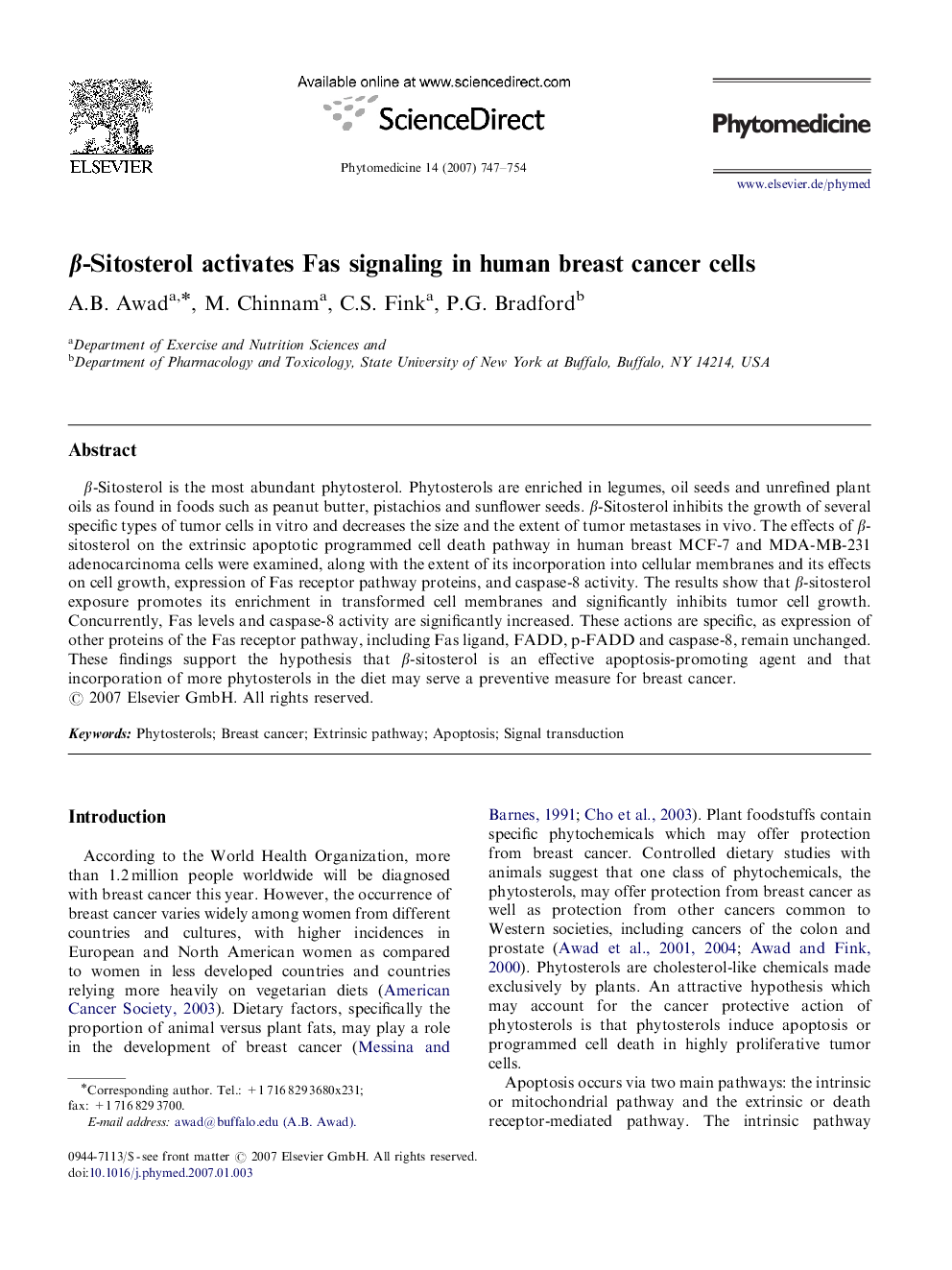| Article ID | Journal | Published Year | Pages | File Type |
|---|---|---|---|---|
| 2497827 | Phytomedicine | 2007 | 8 Pages |
β-Sitosterol is the most abundant phytosterol. Phytosterols are enriched in legumes, oil seeds and unrefined plant oils as found in foods such as peanut butter, pistachios and sunflower seeds. β-Sitosterol inhibits the growth of several specific types of tumor cells in vitro and decreases the size and the extent of tumor metastases in vivo. The effects of β-sitosterol on the extrinsic apoptotic programmed cell death pathway in human breast MCF-7 and MDA-MB-231 adenocarcinoma cells were examined, along with the extent of its incorporation into cellular membranes and its effects on cell growth, expression of Fas receptor pathway proteins, and caspase-8 activity. The results show that β-sitosterol exposure promotes its enrichment in transformed cell membranes and significantly inhibits tumor cell growth. Concurrently, Fas levels and caspase-8 activity are significantly increased. These actions are specific, as expression of other proteins of the Fas receptor pathway, including Fas ligand, FADD, p-FADD and caspase-8, remain unchanged. These findings support the hypothesis that β-sitosterol is an effective apoptosis-promoting agent and that incorporation of more phytosterols in the diet may serve a preventive measure for breast cancer.
